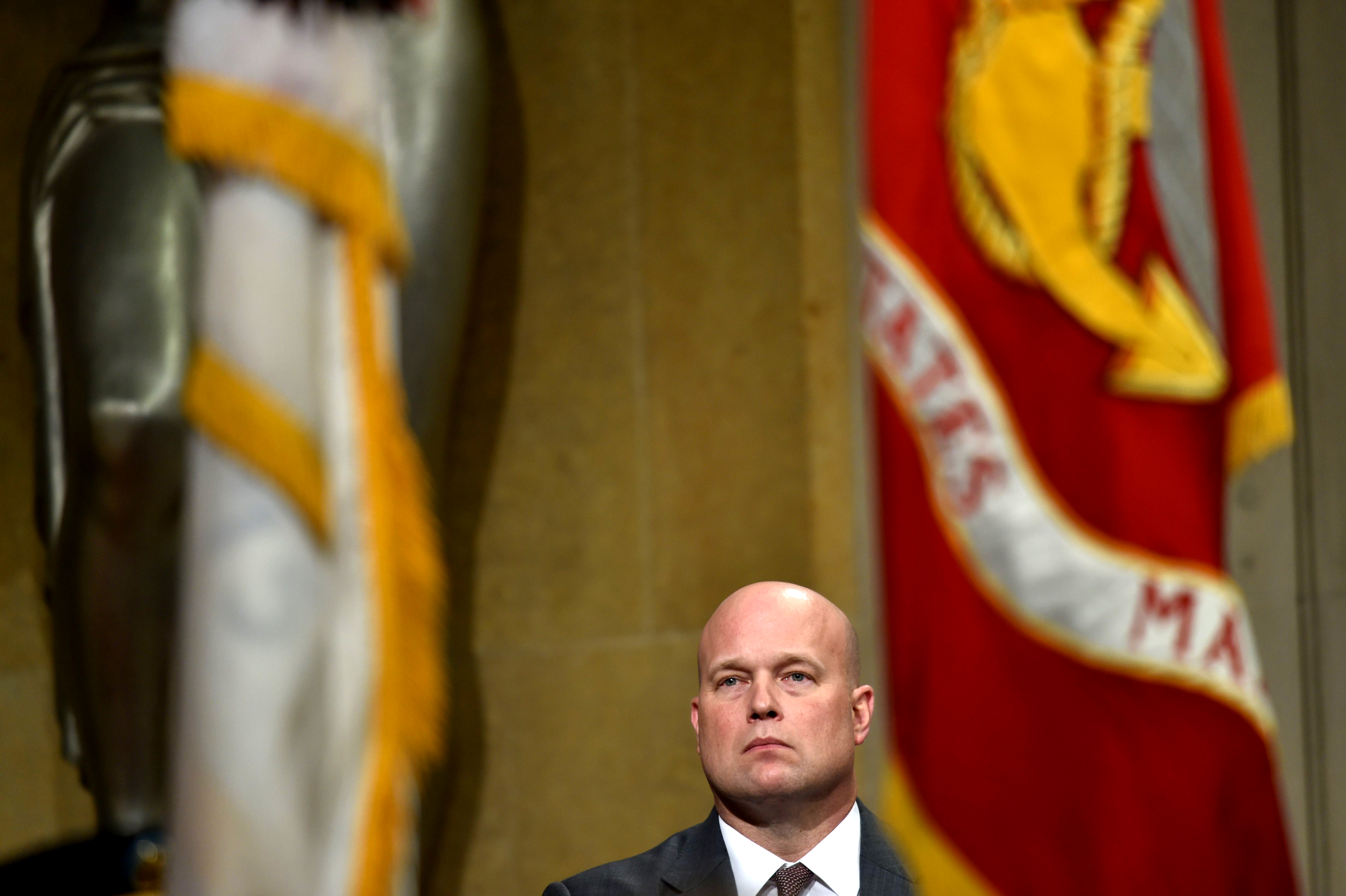Who bought the attorney general?
Matthew Whitaker's anonymous benefactor shows why "dark money" is so dangerous


A free daily email with the biggest news stories of the day – and the best features from TheWeek.com
You are now subscribed
Your newsletter sign-up was successful
When a corporation or wealthy individual donates vast sums to promote a political cause or candidate, the Supreme Court has held, it is not a form of corruption. It is free speech — and therefore cannot be limited. Citizens United and related rulings would, perhaps, not have had such a pernicious influence on our country's politics had it not been for the "dark money" loophole in the tax code. "Social welfare" or 501(c)(4) groups, which supposedly devote most of their efforts to charitable good works, are legally allowed to conceal their donors. Hundreds of millions of dollars now flow through groups on both the left and right with such anodyne names as "Freedom Partners" and "Patriot Majority." The acting attorney general, Matthew Whitaker, was paid $1.2 million by one such "charity" to serve as a TV attack-dog partisan. Who paid Whitaker so generously, and how might those payments now influence his supervision of Special Counsel Robert Mueller? Sorry: That's none of your business.
Anonymous speech, we have learned in recent years, can be a corrosive force. On Facebook and Twitter and in internet chat rooms, nameless or disguised trolls have amplified Russian disinformation and convinced millions of baseless conspiracy theories. They've spread anti-Semitism, racism, and misogyny, and tried to intimidate opponents and journalists with death threats. This is cowardly speech, free of all consequence. Defenders of anonymity argue that corporations and rich people might be subjected to protests, boycotts, and other repercussions if their attempts to buy influence became public. So? In the real world, we all face consequences for exercising our right to speak freely. If you publicly embarrass your employer, you can be fired; if you libel innocent people, you can be sued; if you traffic in hatred, you can be shunned. If we are to have an attorney general beholden to a benefactor, we should at least know who bought and paid for him.
A free daily email with the biggest news stories of the day – and the best features from TheWeek.com
The Week
Escape your echo chamber. Get the facts behind the news, plus analysis from multiple perspectives.

Sign up for The Week's Free Newsletters
From our morning news briefing to a weekly Good News Newsletter, get the best of The Week delivered directly to your inbox.
From our morning news briefing to a weekly Good News Newsletter, get the best of The Week delivered directly to your inbox.
William Falk is editor-in-chief of The Week, and has held that role since the magazine's first issue in 2001. He has previously been a reporter, columnist, and editor at the Gannett Westchester Newspapers and at Newsday, where he was part of two reporting teams that won Pulitzer Prizes.
-
 The Week Unwrapped: Do the Freemasons have too much sway in the police force?
The Week Unwrapped: Do the Freemasons have too much sway in the police force?Podcast Plus, what does the growing popularity of prediction markets mean for the future? And why are UK film and TV workers struggling?
-
 Properties of the week: pretty thatched cottages
Properties of the week: pretty thatched cottagesThe Week Recommends Featuring homes in West Sussex, Dorset and Suffolk
-
 The week’s best photos
The week’s best photosIn Pictures An explosive meal, a carnival of joy, and more
-
 The billionaires’ wealth tax: a catastrophe for California?
The billionaires’ wealth tax: a catastrophe for California?Talking Point Peter Thiel and Larry Page preparing to change state residency
-
 Bari Weiss’ ‘60 Minutes’ scandal is about more than one report
Bari Weiss’ ‘60 Minutes’ scandal is about more than one reportIN THE SPOTLIGHT By blocking an approved segment on a controversial prison holding US deportees in El Salvador, the editor-in-chief of CBS News has become the main story
-
 Has Zohran Mamdani shown the Democrats how to win again?
Has Zohran Mamdani shown the Democrats how to win again?Today’s Big Question New York City mayoral election touted as victory for left-wing populists but moderate centrist wins elsewhere present more complex path for Democratic Party
-
 Millions turn out for anti-Trump ‘No Kings’ rallies
Millions turn out for anti-Trump ‘No Kings’ ralliesSpeed Read An estimated 7 million people participated, 2 million more than at the first ‘No Kings’ protest in June
-
 Ghislaine Maxwell: angling for a Trump pardon
Ghislaine Maxwell: angling for a Trump pardonTalking Point Convicted sex trafficker's testimony could shed new light on president's links to Jeffrey Epstein
-
 The last words and final moments of 40 presidents
The last words and final moments of 40 presidentsThe Explainer Some are eloquent quotes worthy of the holders of the highest office in the nation, and others... aren't
-
 The JFK files: the truth at last?
The JFK files: the truth at last?In The Spotlight More than 64,000 previously classified documents relating the 1963 assassination of John F. Kennedy have been released by the Trump administration
-
 'Seriously, not literally': how should the world take Donald Trump?
'Seriously, not literally': how should the world take Donald Trump?Today's big question White House rhetoric and reality look likely to become increasingly blurred
